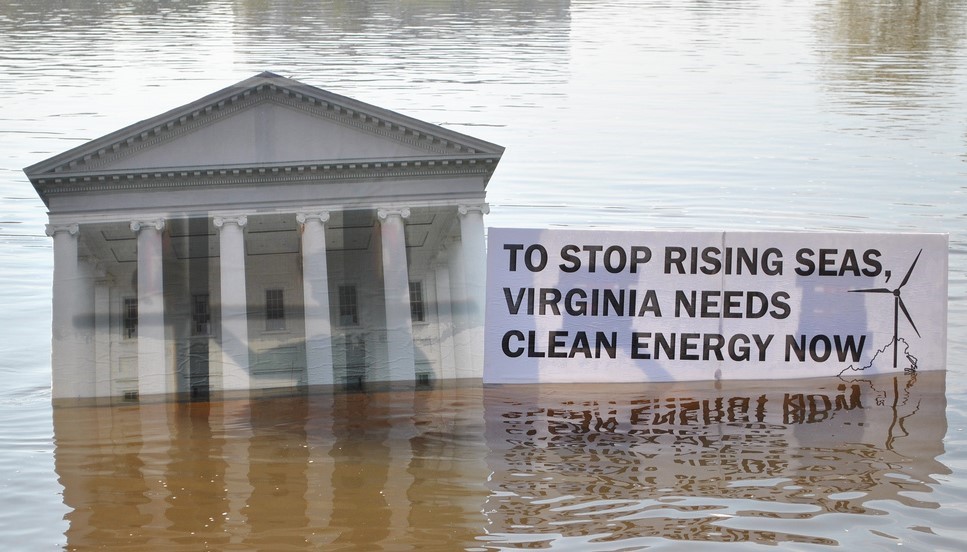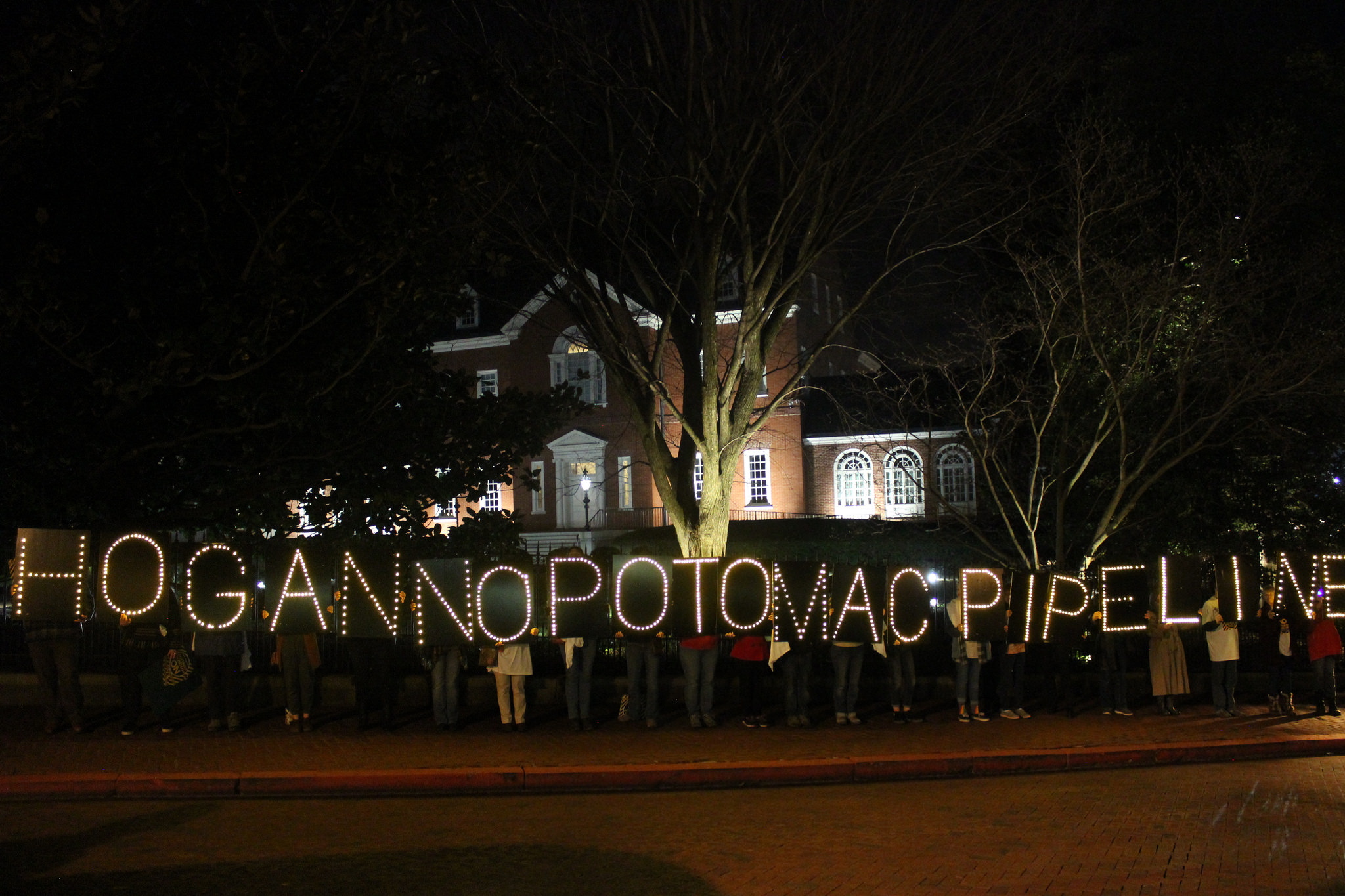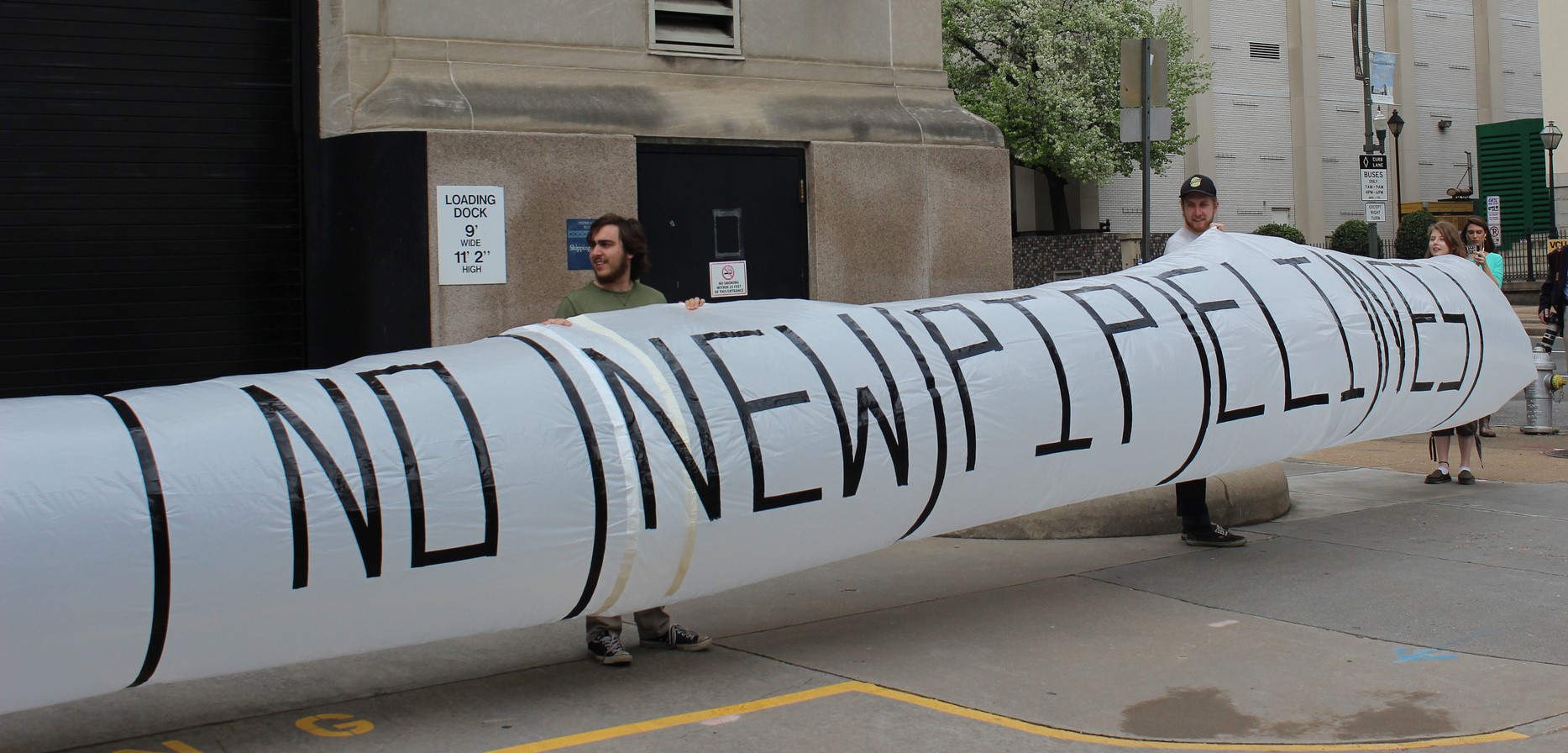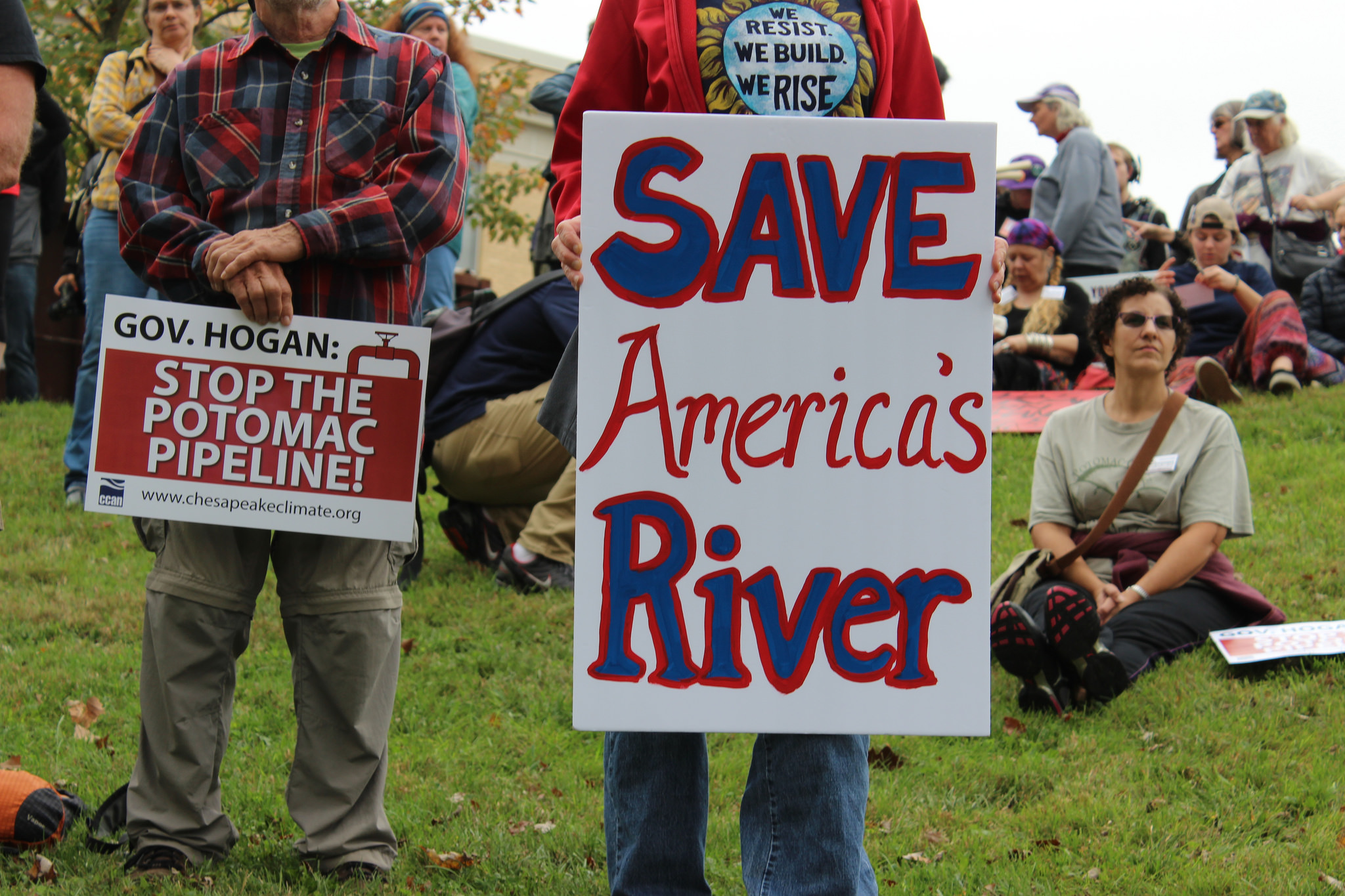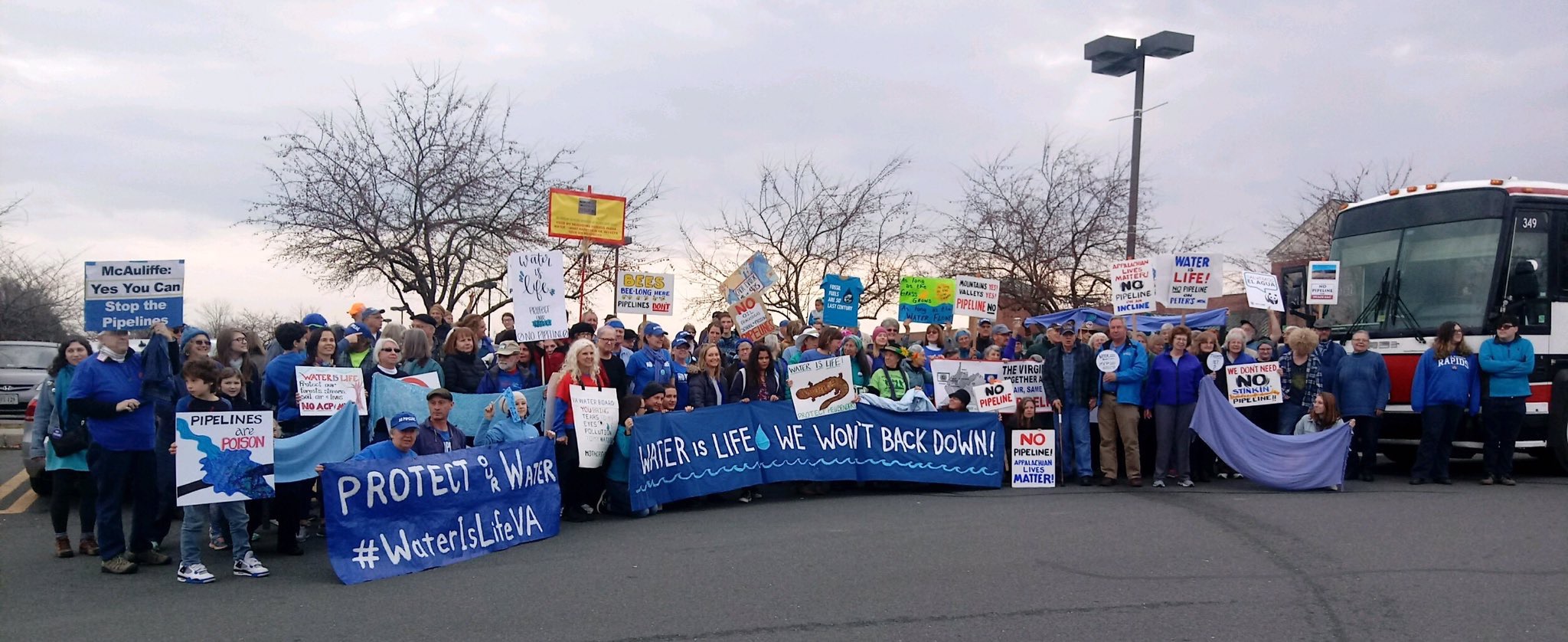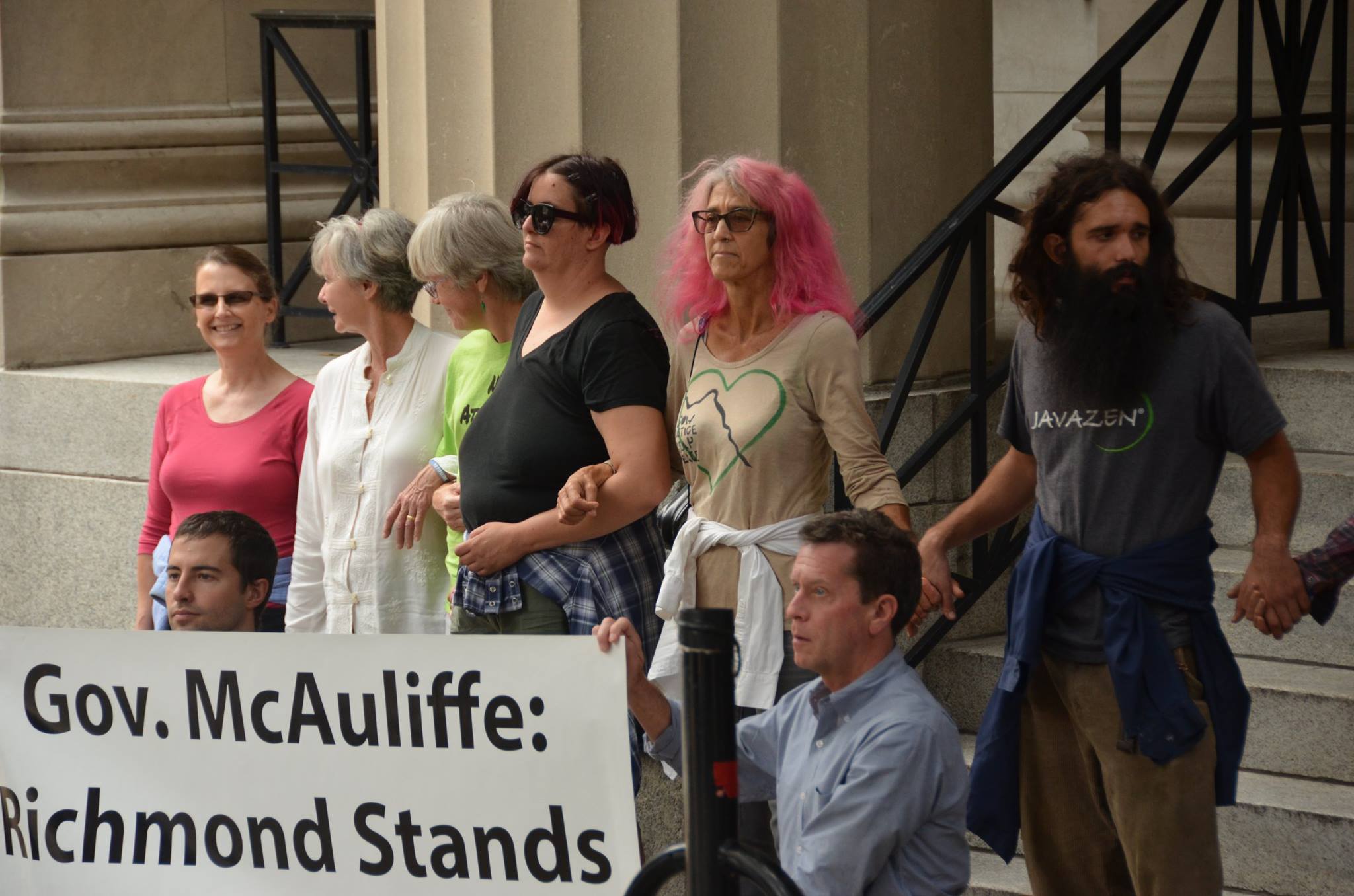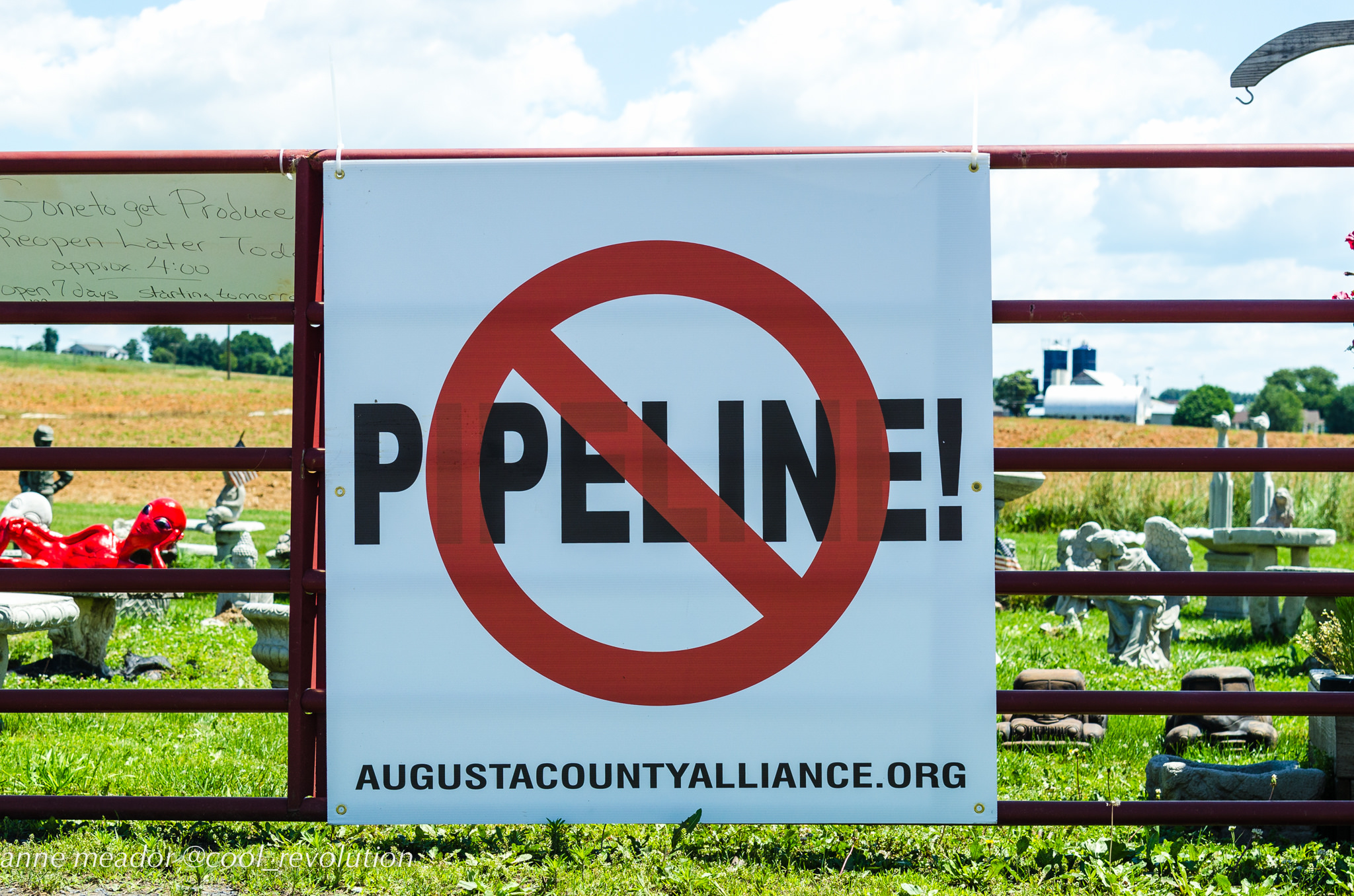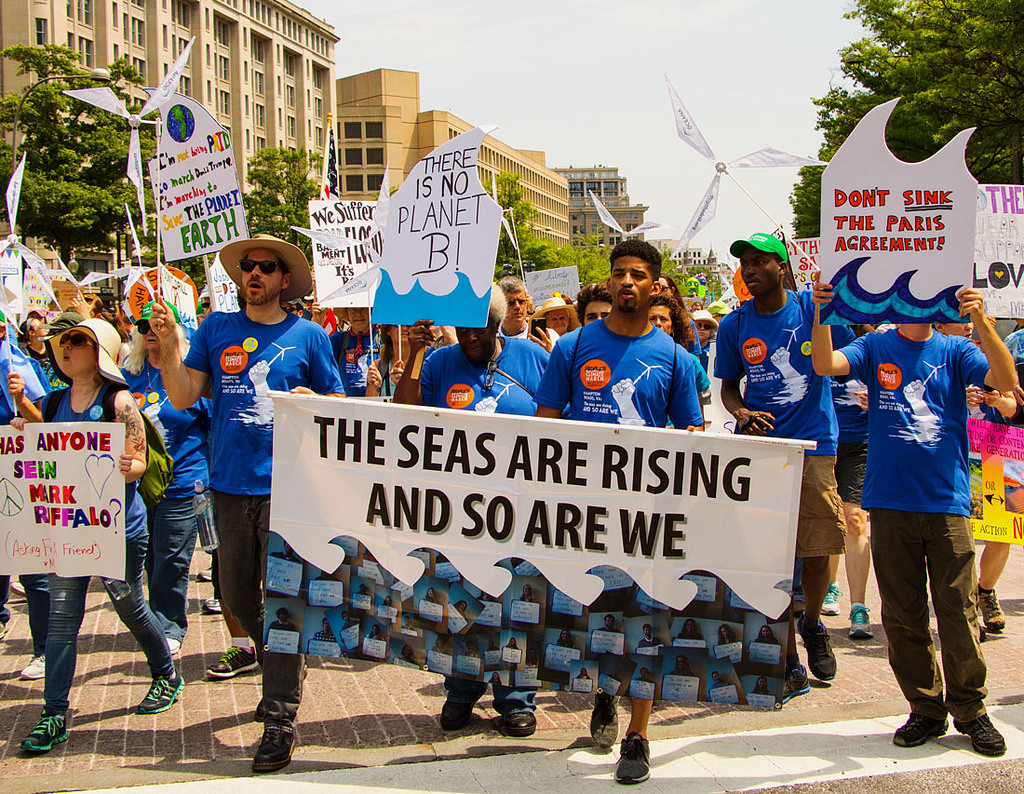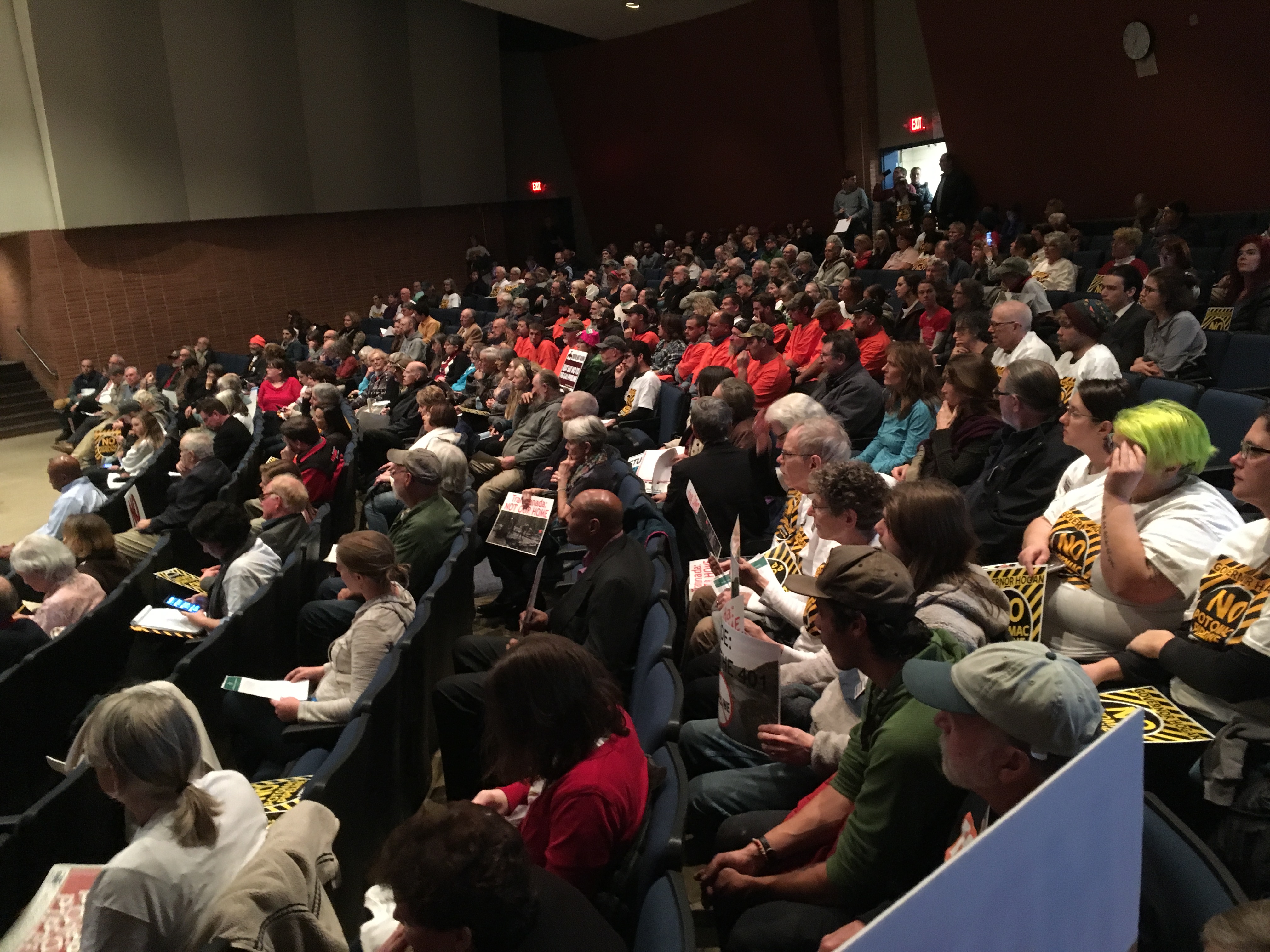Participants call on DEQ to implement strong regulations against polluting, harmful power plants
VIRGINIA – Between March 6 and March 19, Virginia’s Department of Environmental Quality (DEQ) will be holding six public hearings on Virginia’s Carbon Reduction Plan, or Executive Directive 11 (ED 11). Virginia is the first southern state to take initiative on limiting and capping carbon pollution from fossil fuel-burning power plants. The Virginia Carbon Reduction Plan is designed to reduce carbon emissions from fossil fuel-burning power plants by 30 percent by the year 2030, help generate new clean energy jobs, and put the Commonwealth on track for continued reductions beyond 2030. ED 11’s approach is the same one that is being successfully used in nine other states that comprise the Regional Greenhouse Gas Initiative (RGGI), and would allow Virginia to link to the existing RGGI program.
“Virginia has a chance to embrace the new technology of clean energy, move away from outdated, dirty fossil-fuel burning power plants, and enjoy the benefits that renewable energy is bringing to other states,” Kate Addleson, Sierra Club Virginia Chapter Director, said. “The ED11 hearings provide all stakeholders an opportunity to have a say in how best to safeguard our health and environment. The regulations should be included a starting cap between 30 and 32 million tons of emissions by 2020 and continued reduction of the carbon cap beyond 2030.”
“Virginia’s decision to cap carbon emissions through a market-based approach like RGGI offers a great opportunity to improve the livelihood and health of low-income families and communities of color who are most vulnerable to climate change and dirty fossil fuel pollutants. In order to achieve that goal, ED11 should ensure that there are emission reductions in environmental justice communities and that there is a mechanism that ensures reductions of greenhouse gas co-pollutant emissions by facilities located in or near environmental justice neighborhoods,” said Harrison Wallace, Virginia Policy Coordinator and Coastal Campaigns Manager at Chesapeake Climate Action Network.
“As we begin the hearings for ED11, a significant concern that must be addressed is the woody biomass loophole, which exempts Dominion Energy’s 4 woody biomass plants from the carbon regulations. Granting such significant free giveaways to industrial carbon polluters renders Virginia’s carbon program less efficient and gives Dominion an unfair economic advantage,” Walton Shephard, Policy Analyst and Attorney at the Natural Resource Defence Council, said. “Given that biomass greenhouse gas emissions are higher than those from burning fossil fuels, there’s no reason to exempt biomass from Virginia’s carbon program.”
“The clean energy industry is creating jobs, increasing manufacturing, and lowering customers’ electricity bills. In 2016, the number of solar jobs in VA increased by 65 percent. If the state received 10% of its power from the sun by 2023, Virginia would see over 50,400 more jobs. Between 2013 to 2016, energy efficiency business revenue in Virginia increased from $300 million to $1.5 billion. A policy that levels the playing field by pricing carbon will further drive clean energy investment,” said Francis Hodsoll, CEO of SolUnesco.
“Over a course of five years, RGGI states have prevented hundreds of premature deaths, reduced ER visits, and avoided thousands of asthma attacks through their carbon reduction plan. These health benefits were so great that they have even lead to positive health implications in the neighboring states, including Virginia,” Dr. Leon Vinci of Health Promotion Consults, said. “It is time for Virginia to not only accept residual health benefits from our neighbors, but to also lead the South in regulating the harmful effects of fossil fuel burning power plants at home.”
Hearings will be held across the state between March 6 to March 19. Below is a list of all hearings, locations, and times. Public comments can be submitted here: http://vasierra.club/cutcarbon
ABINGDON CARBON RULE PUBLIC HEARING: March 7, 2018 at 5:00pm
355 Deadmore St., Abingdon, VA 24210, USA
ROANOKE CARBON RULE PUBLIC HEARING: March 8, 2018 at 5:00pm
3019 Peters Creek Rd, Roanoke, VA 24019, USA
VIRGINIA BEACH CARBON RULE PUBLIC HEARING: March 12, 2018 at 5:00pm
5636 Southern Blvd, Virginia Beach, VA 23462, USA
HARRISONBURG CARBON RULE PUBLIC HEARING: March 14, 2018 at 5:00pm
4101-4599 Early Rd, Mt Crawford, VA 22841, USA
WOODBRIDGE CARBON RULE PUBLIC HEARING: March 15, 2018 at 5:00pm
13901 Crown Ct, Woodbridge, VA 22193, USA
RICHMOND CARBON RULE PUBLIC HEARING: March 19, 2018 at 1:30pm
1111 East Main St., Third Floor, Richmond, VA 23219, USA
###
Contact:
Sumer Shaikh: sumer.shaikh@sierraclub.org, (774) 545-0128
About the Sierra Club
The Sierra Club is America’s largest and most influential grassroots environmental organization, with more than 3 million members and supporters. In addition to helping people from all backgrounds explore nature and our outdoor heritage, the Sierra Club works to promote clean energy, safeguard the health of our communities, protect wildlife, and preserve our remaining wild places through grassroots activism, public education, lobbying, and legal action. For more information, visit www.sierraclub.org.

